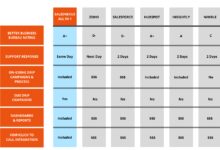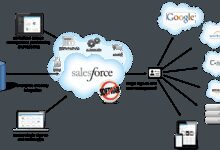Zoho CRM vs Salesforce: 7 Shocking Truths Revealed
Choosing between Zoho CRM and Salesforce can feel like picking between a nimble startup and a corporate giant. Both promise growth, efficiency, and smarter sales—but which one actually delivers for your business size, budget, and goals? Let’s break it down.
Zoho CRM vs Salesforce: Market Position and Company Overview

Understanding the origins and market positioning of Zoho CRM and Salesforce is essential to grasp how their philosophies shape their products. While both are leaders in the CRM space, their paths to dominance couldn’t be more different.
Origins and Evolution of Zoho CRM
Zoho Corporation, founded in 1996 as AdventNet, began as a network management software provider before pivoting toward cloud-based productivity and business tools. Headquartered in Chennai, India, with a strong global presence, Zoho has grown organically without external funding, maintaining full control over its product roadmap and pricing strategy.
Zoho CRM launched in 2005 as part of the broader Zoho One ecosystem—a suite of over 50 integrated business applications. This integration-first approach sets Zoho apart, offering a unified platform for sales, marketing, finance, HR, and more. The company emphasizes affordability, ease of use, and accessibility for small to mid-sized businesses (SMBs).
Over the years, Zoho CRM has evolved from a basic contact manager into a full-fledged AI-powered sales automation platform with features like Zia (its AI assistant), workflow automation, and deep third-party integrations. Its growth has been fueled by consistent product innovation and a customer-centric pricing model.
Origins and Evolution of Salesforce
Salesforce, founded in 1999 by former Oracle executive Marc Benioff, is widely credited with pioneering the Software-as-a-Service (SaaS) model. Based in San Francisco, California, Salesforce disrupted the traditional software industry by delivering CRM functionality entirely through the cloud—no on-premise installations required.
zoho crm vs salesforce – Zoho crm vs salesforce menjadi aspek penting yang dibahas di sini.
The company’s mission, “to end software,” was revolutionary at the time. Salesforce quickly gained traction among enterprise clients due to its scalability, robust customization options, and early adoption of cloud technology. Today, it’s the world’s #1 CRM platform, powering over 150,000 companies globally, including Fortune 500 giants.
Salesforce has expanded far beyond CRM through strategic acquisitions like ExactTarget (marketing), MuleSoft (integration), Tableau (data visualization), and Slack (collaboration). This ecosystem approach allows Salesforce to offer end-to-end digital transformation solutions, though often at a premium cost and complexity.
“Salesforce didn’t just enter the CRM market—they created it.” — TechCrunch
Zoho CRM vs Salesforce: Pricing and Affordability Compared
One of the most decisive factors in the Zoho CRM vs Salesforce debate is pricing. For many businesses, especially startups and SMBs, cost isn’t just a number—it’s a survival metric.
Zoho CRM Pricing Structure
Zoho CRM offers one of the most transparent and flexible pricing models in the industry. It starts with a free plan for up to 3 users, making it ideal for solopreneurs and micro-businesses. Paid plans begin at just $14 per user per month (billed annually) for the Standard tier, scaling up to $52/user/month for the Enterprise plan.
- Free Plan: Up to 3 users, basic CRM features, 1 million records
- Standard ($14/user/month): Sales automation, email integration, webforms
- Professional ($23/user/month): Customizable dashboards, inventory management, advanced automation
- Enterprise ($40/user/month): Territory management, audit trails, role-based profiles
- Ultimate ($52/user/month): Advanced analytics, forecasting, multi-currency support
What makes Zoho especially attractive is that many advanced features—like AI, workflow rules, and integrations—are available even in lower-tier plans. Additionally, discounts are available for non-profits and educational institutions.
Salesforce Pricing Structure
Salesforce, on the other hand, operates on a premium pricing model. There is no free plan, and entry-level pricing starts at $25 per user per month for Salesforce Essentials—though this is limited in functionality. The more capable Sales Cloud starts at $75/user/month, with higher tiers reaching $300+/user/month for Unlimited and customized Enterprise editions.
zoho crm vs salesforce – Zoho crm vs salesforce menjadi aspek penting yang dibahas di sini.
- Essentials ($25/user/month): Basic CRM, lead & contact management, 24/7 support
- Professional ($75/user/month): Sales forecasting, workflow automation, custom reports
- Enterprise ($150/user/month): Advanced customization, API access, territory management
- Unlimited ($300/user/month): Premium support, sandbox environments, advanced analytics
Beyond base pricing, additional costs often arise from add-ons like Marketing Cloud, Service Cloud, Pardot, or Einstein AI. Implementation, training, and consulting services can also push total costs into tens of thousands of dollars—especially for large deployments.
“If Zoho CRM is a compact car, Salesforce is a luxury SUV—both get you there, but one comes with a much higher fuel bill.” — Forbes
Zoho CRM vs Salesforce: Feature Comparison and Capabilities
When comparing Zoho CRM vs Salesforce, feature depth and usability are critical. Both platforms offer extensive functionality, but they cater to different needs and technical comfort levels.
Sales Automation and Lead Management
Zoho CRM provides intuitive sales automation tools that are easy to set up, even for non-technical users. Features include lead scoring, email templates, task automation, and round-robin lead assignment. Its drag-and-drop workflow builder allows users to create complex automation without coding.
Salesforce offers more granular control over automation through tools like Process Builder, Flow, and Apex (its proprietary programming language). While powerful, these require technical expertise or developer support. For businesses with in-house IT teams, this flexibility is a major advantage. For others, it can be overwhelming.
Both platforms support lead lifecycle management, but Zoho’s interface is generally considered more user-friendly for day-to-day sales reps.
Marketing and Campaign Management
Zoho CRM integrates seamlessly with Zoho Marketing Automation (part of Zoho Marketing Hub), offering email campaigns, landing pages, A/B testing, and social media scheduling—all within the same ecosystem. This tight integration reduces data silos and simplifies campaign tracking.
zoho crm vs salesforce – Zoho crm vs salesforce menjadi aspek penting yang dibahas di sini.
Salesforce offers Pardot and Marketing Cloud for marketing automation. Pardot is designed for B2B marketing with lead nurturing and scoring, while Marketing Cloud targets B2C with advanced personalization and journey mapping. However, these are separate products with additional costs and steeper learning curves.
For SMBs running integrated marketing and sales operations, Zoho’s all-in-one approach often proves more efficient and cost-effective.
Customer Service and Support Tools
Zoho CRM includes basic service desk features, but its full customer support capabilities come through Zoho Desk—a separate but deeply integrated application. Zoho Desk offers ticketing, knowledge base, multi-channel support (email, phone, chat), and AI-powered suggestions.
Salesforce’s Service Cloud is one of the most powerful customer service platforms available. It supports omnichannel routing, AI chatbots (Einstein Bots), case management, and field service scheduling. It’s widely used by large enterprises with complex support needs.
While Service Cloud is more feature-rich, it also requires more configuration and training. For smaller teams, Zoho Desk provides sufficient functionality at a fraction of the cost.
Zoho CRM vs Salesforce: User Experience and Interface Design
The user experience (UX) can make or break CRM adoption. A powerful system is useless if your team avoids using it due to complexity.
zoho crm vs salesforce – Zoho crm vs salesforce menjadi aspek penting yang dibahas di sini.
Dashboard and Navigation
Zoho CRM features a clean, modern interface with a left-hand navigation menu, customizable dashboards, and a unified search bar. New users can typically navigate the system within minutes. The mobile app mirrors the desktop experience closely, ensuring consistency across devices.
Salesforce has improved its UX over the years with Lightning Experience, but it still feels cluttered to many users. The interface is highly customizable, which is great for power users but can be confusing for beginners. Navigating between apps (Sales, Service, Marketing) requires switching between different modules, which can disrupt workflow.
Zoho’s simplicity gives it an edge in user adoption, especially for sales teams that prioritize speed over deep customization.
Customization and Flexibility
Salesforce excels in customization. With its AppExchange (a marketplace with over 5,000 apps), developers can extend functionality almost infinitely. Custom objects, fields, workflows, and permission sets allow businesses to tailor the system precisely to their processes.
Zoho CRM also offers strong customization options, including custom modules, fields, and page layouts. However, it doesn’t match Salesforce’s depth. That said, for most SMBs, Zoho’s level of customization is more than sufficient.
The trade-off is clear: Salesforce offers maximum flexibility at the cost of complexity; Zoho offers balanced customization with ease of use.
zoho crm vs salesforce – Zoho crm vs salesforce menjadi aspek penting yang dibahas di sini.
Mobile Experience
Zoho CRM’s mobile app (available on iOS and Android) is highly rated for its responsiveness and feature parity with the desktop version. Users can log calls, update deals, send emails, and view dashboards on the go. Offline mode allows data entry without internet connectivity.
Salesforce’s mobile app is also robust, offering similar functionality. However, some users report slower load times and occasional syncing issues. The interface, while functional, isn’t as intuitive as Zoho’s.
Both platforms support mobile productivity, but Zoho’s app is often praised for its speed and simplicity.
Zoho CRM vs Salesforce: Integration and Ecosystem
No CRM operates in isolation. The ability to connect with other tools—email, calendars, accounting, marketing, and productivity apps—is crucial for seamless operations.
Native Integrations
Zoho CRM natively integrates with over 40 Zoho applications, including Zoho Mail, Zoho Books, Zoho Projects, and Zoho Campaigns. This creates a cohesive ecosystem where data flows freely between departments without third-party connectors.
It also supports popular third-party tools like Google Workspace, Microsoft 365, Slack, Shopify, and QuickBooks. Most integrations are straightforward, often requiring just a login and authorization.
zoho crm vs salesforce – Zoho crm vs salesforce menjadi aspek penting yang dibahas di sini.
Salesforce offers native integration with its own suite—Sales Cloud, Service Cloud, Marketing Cloud, Commerce Cloud, and Slack. However, these are often sold as separate modules, increasing cost.
Third-Party and API Access
Salesforce leads in third-party integrations thanks to its massive AppExchange marketplace. With over 5,000 pre-built apps and components, businesses can find solutions for almost any need—from e-signatures (DocuSign) to CPQ (Conga) to AI analytics (Tableau).
Zoho CRM supports over 700 third-party integrations via APIs and Zapier. While smaller than AppExchange, it covers most common business tools. Zoho also offers its own integration platform, Zoho Flow, for building custom workflows between apps.
For enterprises with complex tech stacks, Salesforce’s integration breadth is unmatched. For SMBs, Zoho’s ecosystem is often more than adequate.
Zoho One vs Salesforce Einstein: Ecosystem Strategy
Zoho One represents a bold strategy: one subscription, one platform, one invoice for all business operations. For $37/user/month (billed annually), businesses get access to over 50 Zoho apps, including CRM, finance, HR, and IT management. This bundling reduces vendor sprawl and simplifies IT management.
Salesforce’s strategy is more modular. You pay for each cloud separately, allowing for precise scaling but increasing complexity and cost. Einstein AI is embedded across Salesforce products, offering predictive analytics, lead scoring, and automated insights—but often at an additional cost.
zoho crm vs salesforce – Zoho crm vs salesforce menjadi aspek penting yang dibahas di sini.
Zoho’s integrated approach appeals to businesses seeking simplicity; Salesforce’s modular model suits those needing best-of-breed solutions.
Zoho CRM vs Salesforce: AI and Automation Capabilities
Artificial intelligence and automation are no longer luxuries—they’re necessities for competitive sales teams.
Zia: Zoho’s AI Assistant
Zia is Zoho CRM’s AI engine, designed to assist sales reps with intelligent insights and automation. Key features include:
- Voice Commands: Update records, create tasks, or search data using natural language
- Predictive Scoring: Automatically scores leads and deals based on historical data
- Sentiment Analysis: Analyzes email tone to flag at-risk customers
- Forecasting: Uses machine learning to predict sales outcomes
- Task Suggestions: Recommends next steps based on deal stage
Zia is included in most Zoho CRM plans at no extra cost, making AI accessible even to budget-conscious teams.
Einstein AI: Salesforce’s Intelligence Engine
Salesforce Einstein is one of the most advanced AI platforms in CRM. It offers:
- Einstein Lead Scoring: Predicts which leads are most likely to convert
- Einstein Opportunity Scoring: Identifies at-risk deals and recommends actions
- Einstein Forecasting: Uses historical data to predict revenue with high accuracy
- Einstein Bots: Automates customer service with AI-powered chatbots
- Einstein Analytics: Delivers self-service data insights with natural language queries
However, many Einstein features require additional licensing fees. For example, Einstein Analytics starts at $75/user/month on top of CRM costs.
zoho crm vs salesforce – Zoho crm vs salesforce menjadi aspek penting yang dibahas di sini.
Automation Tools Compared
Zoho CRM’s automation is user-friendly, with a visual workflow builder that allows non-developers to create rules based on triggers, conditions, and actions. It supports email alerts, field updates, task creation, and webhooks.
Salesforce offers more powerful automation through Flow, Process Builder, and Apex triggers. While Flow has a drag-and-drop interface, complex automations often require coding knowledge. This makes Salesforce more scalable for enterprise workflows but less accessible for small teams.
In the Zoho CRM vs Salesforce automation debate, Zoho wins on ease of use; Salesforce wins on depth and scalability.
Zoho CRM vs Salesforce: Implementation, Support, and Scalability
Even the best CRM is only as good as its implementation and ongoing support.
Implementation Complexity
Zoho CRM is known for quick and easy implementation. Most businesses can set up core functionality within days. The platform includes guided onboarding, pre-built templates, and a library of how-to videos. For more complex needs, Zoho offers professional services and a network of partners.
Salesforce implementation can take weeks or months, especially for large organizations. It often requires hiring consultants or certified administrators. While Salesforce provides Trailhead (a free learning platform), the learning curve remains steep.
zoho crm vs salesforce – Zoho crm vs salesforce menjadi aspek penting yang dibahas di sini.
For fast-moving startups or SMBs, Zoho’s rapid deployment is a major advantage.
Customer Support Options
Zoho offers 24/5 email and phone support across all paid plans, with faster response times for higher tiers. Live chat is available for Enterprise users. Support is generally responsive, with average reply times under 24 hours.
Salesforce provides support based on subscription level. Essentials includes basic email support; higher tiers offer phone support, online cases, and access to a customer success manager. Premium support (available at extra cost) includes 24/7 coverage and faster response times.
Both companies offer extensive knowledge bases, community forums, and training resources. Zoho’s support is often praised for its accessibility, while Salesforce’s is seen as more structured but cost-dependent.
Scalability for Growing Businesses
Zoho CRM scales well from small teams to mid-sized enterprises. Its modular pricing and integration with Zoho One make it easy to expand functionality as your business grows. However, very large enterprises with complex global operations may eventually outgrow Zoho’s capabilities.
Salesforce is built for scalability. It handles massive data volumes, supports multi-currency and multi-language operations, and offers enterprise-grade security and compliance. It’s the go-to choice for global corporations with thousands of users.
zoho crm vs salesforce – Zoho crm vs salesforce menjadi aspek penting yang dibahas di sini.
In the Zoho CRM vs Salesforce scalability race, Salesforce is the clear winner for enterprise needs, while Zoho dominates the SMB space.
Zoho CRM vs Salesforce: Security, Compliance, and Data Privacy
As CRM systems store sensitive customer data, security and compliance are non-negotiable.
Data Security Measures
Zoho CRM employs industry-standard security practices, including:
- End-to-end encryption (TLS 1.2+)
- Two-factor authentication (2FA)
- Role-based access control
- IP restrictions and session timeouts
- Regular security audits and penetration testing
Zoho is ISO 27001, SOC 2 Type II, and GDPR compliant, ensuring data protection across regions.
Compliance and Certifications
Salesforce holds an even broader range of certifications, including ISO 27001, SOC 1/2/3, GDPR, HIPAA, and FedRAMP. It offers advanced compliance features like audit trails, data residency controls, and enterprise encryption.
For businesses in regulated industries (finance, healthcare, government), Salesforce’s compliance portfolio is often a deciding factor.
zoho crm vs salesforce – Zoho crm vs salesforce menjadi aspek penting yang dibahas di sini.
Data Ownership and Privacy
Both platforms allow customers to own their data and provide tools for data export and deletion. Zoho emphasizes transparency in its privacy policy, with data centers located in the US, EU, India, and China.
Salesforce also offers data residency options and supports global privacy regulations. However, its data-sharing practices with third-party apps on AppExchange require careful review.
In the Zoho CRM vs Salesforce security debate, both are strong, but Salesforce edges ahead for highly regulated environments.
Zoho CRM vs Salesforce: Real-World Use Cases and Customer Feedback
What do actual users say? Let’s look at real-world scenarios and feedback from G2, Capterra, and Trustpilot.
SMBs and Startups: Why Zoho Wins
Small businesses consistently praise Zoho CRM for its affordability, ease of use, and quick setup. A marketing agency with 10 employees reported cutting onboarding time by 60% compared to Salesforce. Another startup noted that Zoho’s free plan allowed them to test CRM functionality before committing financially.
Common themes in Zoho reviews:
zoho crm vs salesforce – Zoho crm vs salesforce menjadi aspek penting yang dibahas di sini.
- “Affordable with no hidden costs”
- “Easy to customize without IT help”
- “Great value for money”
For SMBs, Zoho CRM vs Salesforce isn’t just a feature comparison—it’s a cost-benefit analysis where Zoho often wins.
Enterprises and Large Organizations: Why Salesforce Dominates
Large enterprises favor Salesforce for its scalability, integration depth, and ecosystem. A Fortune 500 company using Salesforce across 12 departments highlighted its ability to unify sales, service, and marketing data. Another enterprise praised Einstein AI for improving forecast accuracy by 30%.
Common themes in Salesforce reviews:
- “Unmatched customization and power”
- “Worth the investment for large teams”
- “Best-in-class support and resources”
While some complain about cost and complexity, most enterprise users agree that Salesforce delivers where it counts.
Industry-Specific Performance
Zoho CRM performs well in industries like education, professional services, and retail, where simplicity and integration with productivity tools matter most.
Salesforce excels in financial services, healthcare, and telecommunications, where compliance, security, and complex workflows are critical.
zoho crm vs salesforce – Zoho crm vs salesforce menjadi aspek penting yang dibahas di sini.
The choice between Zoho CRM vs Salesforce often comes down to industry requirements and organizational maturity.
Is Zoho CRM better than Salesforce?
It depends on your business needs. Zoho CRM is better for small to mid-sized businesses seeking an affordable, easy-to-use, and integrated CRM. Salesforce is better for large enterprises that need maximum customization, scalability, and advanced features—regardless of cost.
Can Zoho CRM replace Salesforce?
For SMBs and mid-market companies, yes—Zoho CRM can effectively replace Salesforce, especially when using Zoho One for a full business suite. For enterprises with complex global operations, Salesforce remains the more robust choice.
Which CRM has better AI?
zoho crm vs salesforce – Zoho crm vs salesforce menjadi aspek penting yang dibahas di sini.
Salesforce Einstein offers more advanced AI capabilities, particularly in predictive analytics and automation. However, Zoho’s Zia provides excellent AI features at no extra cost, making it more accessible for smaller teams.
Is Salesforce too expensive for small businesses?
Often, yes. Salesforce’s entry-level pricing and additional costs for add-ons can be prohibitive for small businesses. Zoho CRM offers a more budget-friendly alternative with comparable core functionality.
Does Zoho CRM integrate with Salesforce?
Yes, Zoho CRM can integrate with Salesforce using third-party tools like Zapier, or through custom API connections. This allows businesses to migrate data or run both systems in parallel during transitions.
In the Zoho CRM vs Salesforce showdown, there’s no one-size-fits-all answer. Zoho CRM wins on affordability, ease of use, and value for SMBs. Salesforce dominates in enterprise scalability, customization, and ecosystem depth. Your choice should align with your business size, budget, technical resources, and long-term goals. Evaluate both with free trials, involve your team in the decision, and choose the platform that empowers—not complicates—your sales process.
Further Reading:





